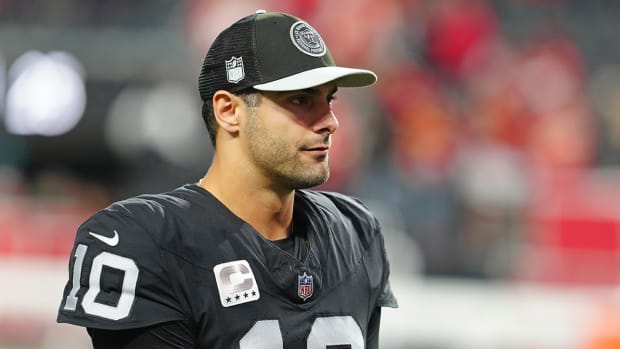Daily Cover: It's a Scary Time For Olympic Sports at the College Level
The coronavirus has financially impacted all businesses, including college universities. SI's Pat Forde details why schools are now making budgets cuts to certain sporting programs which include track and field and how these decisions will impact the future of the Olympics.
Read For Full Video Transcript:
Kaitlin O'Toole: In 2016, Clayton Murphy became the first American man to win an Olympic medal in the 800 meters run since 1992, making him a hero at his school. Akron University. Now, less than four years later, the school has eliminated the country program, along with men's golf and women's tennis. Joining me now is SI writer Pat Forde. Pat this program to help make Murphy a star. It is a big reason he went to school. He's doing his best now with other alarms to raise funds to bring the program back. But with the coronavirus, Akron is just one of many universities making cuts. What does this mean for the Olympic sports community?
Pat Forde: Well, it's a scary time for Olympic sports, Kaitlin, right now and in the United States at the university level, because people are looking to trim budgets across the board and across the nation. And one of the first places they look is the sports that are costing more money than they're bringing in. That's virtually every Olympic sport. The danger there is, first of all, it takes away from your broad-based educational mission to have a well-rounded athletic department. Secondly, it hurts the Olympic movement. As you said it, Clayton Murphy, who came from Akron, you know, not necessarily your powerhouse university, but to win an Olympic medal for the United States. You never know where you're Olympians are going to come from. It is more of these schools that Akron kind of level, you know. East Carolina. Bowling Green, Cincinnati. Old Dominion. So on are cutting these Olympic sports.
You're taking away opportunities for people that potentially flourish in a national or international level. And then the third thing there is that's not taking into account a lot of times as most of these athletes are not on a full scholarship. So they're paying at least part of their way, if not their whole way. And so that tuition money goes into the university and the athletic departments don't count that as part of what comes out of their budgets. So it's a really difficult kind of calculus to put all this together. But it's a dangerous time if you're an Olympic sport athlete or coach in the United States.
Kaitlin O'Toole: Absolutely. So what about that? Olympic sports advocates are saying that universities are in this position because of lavish spending on football and men's basketball. Have colleges really lost their original purpose, a broad-based educational and athletic opportunities?
Pat Forde: Yeah, I think so. You know, I mean, I think that they've gotten seduced by, you know, the big money and the glamor and the attention that comes with football and basketball. And look, those art sales are bad things. And they can do wonders for your university, not just at the power five-level, but like at a Boise State, which I think has changed the whole profile of the university based on football success at Gonzaga. It does the same thing in basketball, but it can't be at the expense of everything else that you're trying to do there. At least it shouldn't be. And so I think schools a lot of times really what you're seeing in this are schools that are almost using the gorilla virus pandemic as an excuse to make cuts that they were already thinking about. There's a lot of universities that are already in red ink in terms of athletic budgets. And now there's this is like basically providing politically correct cover to say one way we're going to try to correct this red ink is by getting rid of a bunch of sports.
Latest News and Videos from Sports Illustrated
- Albert Breer: Mailbag: Overrated and Underrated Draft Prospects; Rob Gronkowski in Tampa
- Tom Verducci: MLB, Players Association Worked on Plan to Isolate Replay Room
- This Day in Sports History: Ted Williams Hits First Home Run
- Hot Clicks: Michael Jordan is Having Trouble Selling Expensive Home
- Daily Cover: Daily Cover: A Behind-The-Scenes Look at Rams GM Les Snead's Draft Day War Room
- Point After: Hopefully ESPN's 'The Last Dance' Encourages MJ to Return to the Public Eye
- Will the NFL Schedule See Changes Due to Coronavirus?








